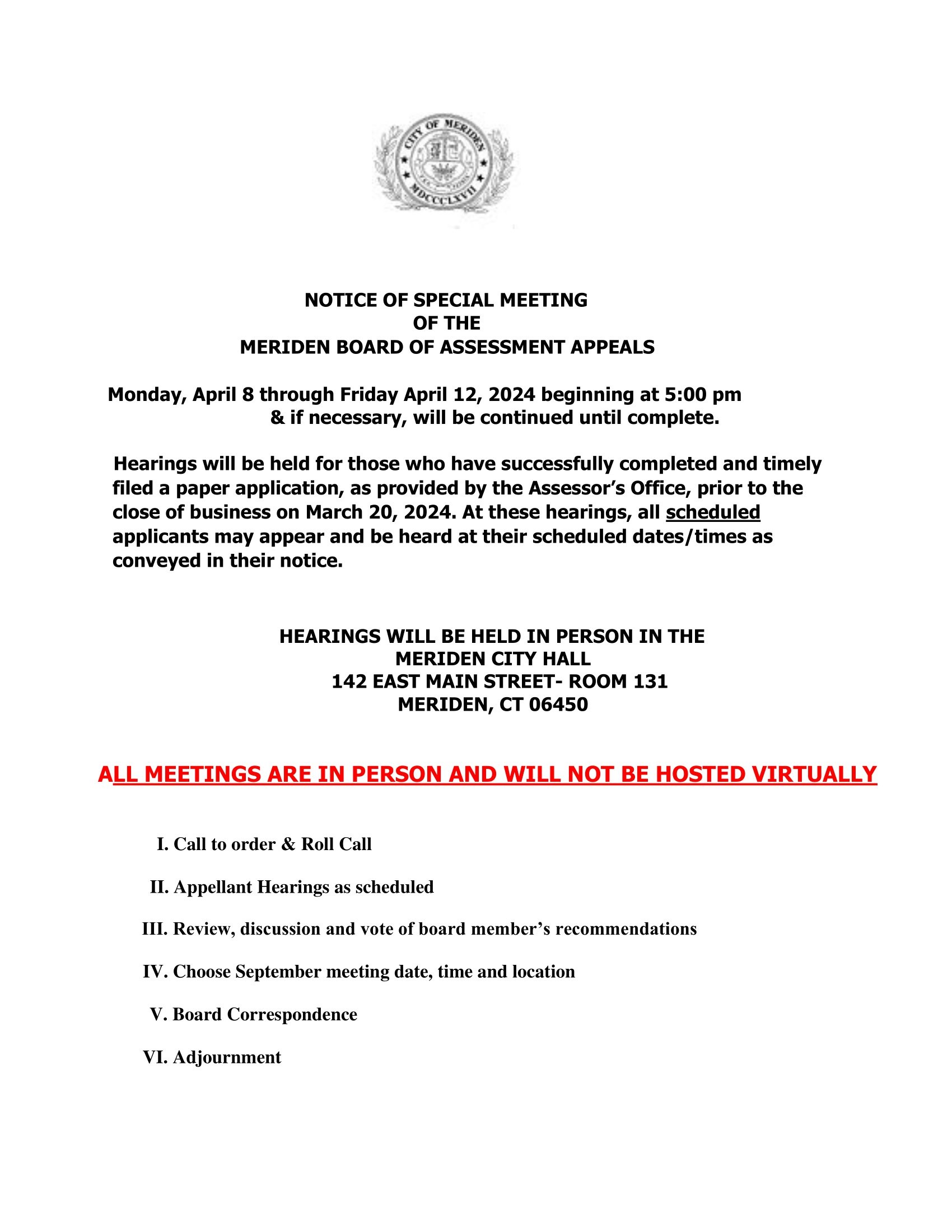Assessment Home
Welcome to the Assessor's Office Web Page
Helpful Videos
| What does an Assessor do during revaluation? | Role of Tax Assessor | |
If you are dropping off information, please use the drop slot and be sure to include a phone number so that we may contact you with any questions. You may also email information to assessor@meridenct.gov.
Location: 142 East Main Street, Meriden CT 06450
Phone: 203-630-4065 Fax 203-630-4068
Office Hours: Monday - Friday: 8:00 am to 5:00 pm
Interim City Assessor: Greg Stackpole
Primary Duties of the Tax Assessor’s Office
The Tax Assessor's Office is responsible for the discovery, listing, valuation and equalization of all properties in the City Of Meriden. This office is also responsible for the maintenance of assessment records and annual calculation of the tax base. This office values all real and personal property located in the City of Meriden on a fair and equitable basis according to Connecticut General Statutes.
How your Property is Assessed.
The Assessor creates a Grand List of real and personal property owned and located in the City of Meriden as of October 1st each year. To compile the City’s Grand List the Assessor follows these three primary steps:
1. Discover
2. List
3. Value
It is the goal of the Assessor to compile a Grand List that is fair and equitable to all property owners, as stipulated by State law. The above steps are taken to ensure that no property owners are assessed more than once for the same property, or omitted from the list in error. The Assessor also makes every attempt to ensure that the correct person or persons are assessed accordingly. The following is a brief description of each step in the assessment process.

DISCOVER
The first duty of the Assessor is to discover real and personal property located in the City. The Assessor begins this process with the previous year’s Grand List and utilizes various resources to compile the next year’s Grand List. Some of these resources include the following:
1. City Clerk’s records, including deed transfers and trade name certificates
2. Maps, including survey maps and subdivision maps, by comparing assessment records with the GIS parcel database.
3. Commercial Records
4. Building permits and demolition permits
5. City Fire Marshall reports
6. Newspapers and other periodicals
7. Physical inspections of properties
8. Business Personal Property declarations
9. CT DMV listing of registered vehicles
10. City Health Inspector reports
11. Liquor license applications
12. Secretary of the State
13. Information forwarded from other Assessors
14. Other taxpayers
15. Online databases and resources
LIST
Once property has been located, the Assessor includes it in the City’s Grand List. Each year’s Grand List is printed and bound into books, categorized by Real Estate, Motor Vehicle and Personal Property. The list is arranged in alphabetical order, by owner last name or business name.
The Assessor also maintains property record cards for each parcel of real estate located in the City. These cards include owner name(s) and mailing address, parcel size and location, as well as Assessor map number and Assessor parcel or lot number. In addition, each parcel carries a number that uniquely identifies it. Some or all of this information enables identification of a parcel on the Assessor maps.
VALUE
All property is valued by the Assessor in a uniform manner and according to the laws of the State of Connecticut. Connecticut General Statutes (12-63) state that the present true and actual value of property must be its fair market value. Fair market value is the amount of money for which property may be exchanged within a reasonable time period, and under conditions in which all parties are willing, able, and reasonably well-informed. General Statute (12-64) states that all nonexempt property shall be included in the grand list of the city or town in which it is located on October 1. Real and personal property (which includes motor vehicles) is assessed at seventy percent of its market value.
